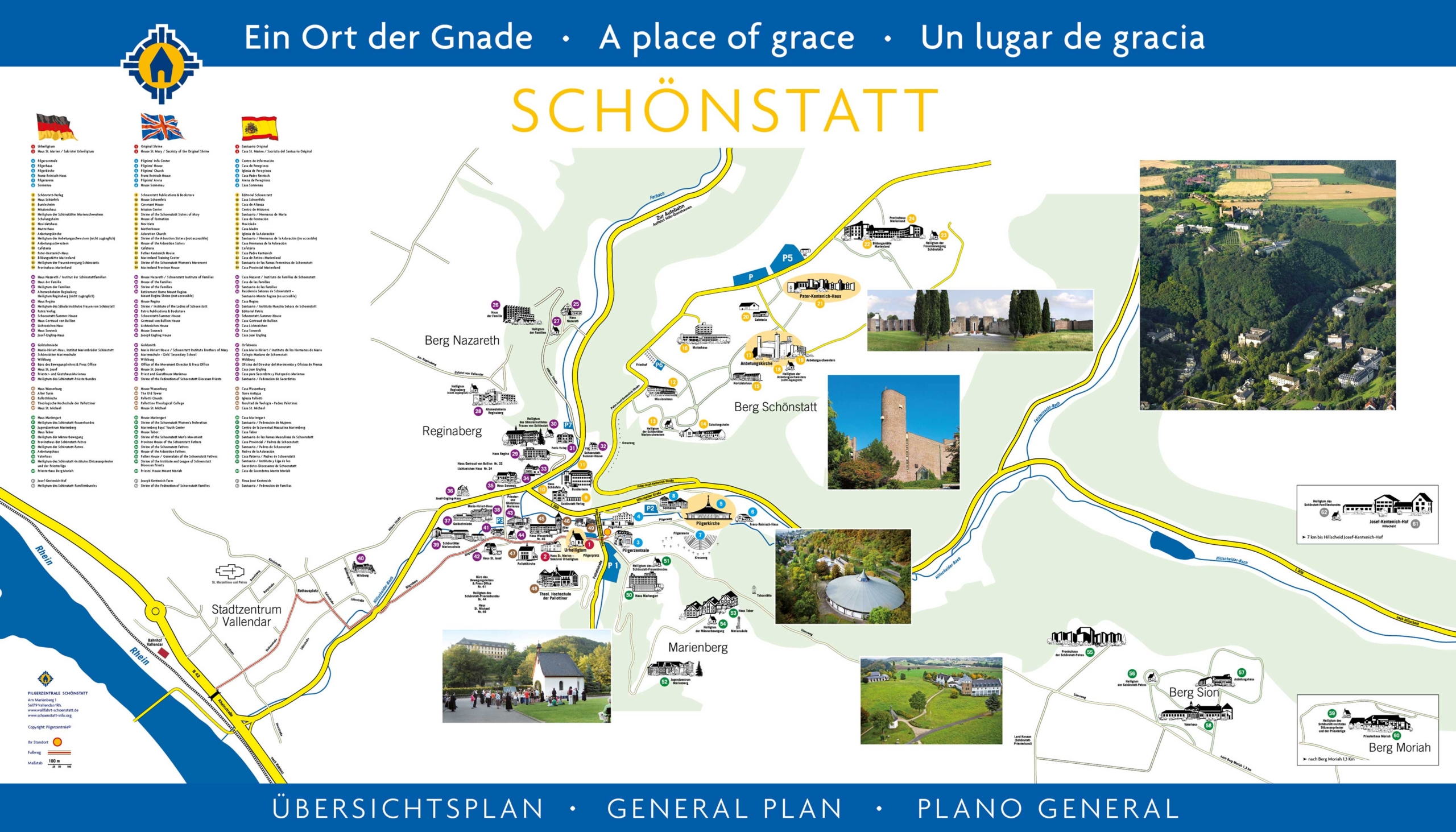Schoenstatt as a Place
Schoenstatt is the place of origin and centre of the international Schoenstatt Movement. Central places are the Original Shrine and the Adoration Church with the tomb of the founder Father Joseph Kentenich, the Pilgrims‘ Church and the Father Kentenich House. The central and training houses of the various Schoenstatt communities are also located in Schoenstatt.
Central places in Schoenstatt

The Original Shrine
The Original Shrine is the centre pligrimage place in Schoenstatt. Schoenstatt was founded in this small chapel on 18 October 1914.
Father Joseph Kentenich, spiritual director of the boarding school students at the Pallottine High School, asked the Blessed Mother with some of the young boys to distribute graces and gifts from here. In return they offered her deeds of love. They sealed a Covenant of Love with Mary, which was expressed in the mutual giving and receiving. The enthusiasm of these young people spread to throughout time to many people. Schoenstatt is now a place of pilgrimage and the origin of an international apostolic movement.
There are more than 200 replicas worldwide of this first Schoenstatt Shrine. Here the Blessed Mother offers special pilgrimage graces: an experience of being at home in God, an inner/spirtual transformation and the courage for apostolic and missionary commitment to God.

The Pilgrims‘ Church
The Pilgrims‘ Church in the Schoenstatt Valley was blessed on 4 July 1999. On the threshold of the third millennium, this church is a gift to the Triune God and to the many pilgrims who come to Schoenstatt from Germany and abroad.
This church is a place of encounter with God and Mary. It is built in a round shape. The architect Anton Alshut directs the „gaze upwards: to the light, to the cross, to the peak, to infinity.“
The ecological construction method made of wood contributes to man and nature finding harmony and unity with God. The tabernacle, cross and frame of the image of grace are works of the Chilean artist María Jesús Ortiz de Fernandez. The Pilgrims‘ Church is connected with the Original Shrine, Schoenstatt’s Chapel of Grace. It has room for over 1000 pilgrims.

The Adoration Church
The Adoration Church is on Mount Schoenstatt. It was consecrated on Trinity Sunday 1967 and since then its three towers point to the Triune God. That is why it is also called the Trinity Church. Regular Masses, Adoration and Benediction take place here. In the former sacristy of this church – today’s Founder’s Chapel – is the tomb of Father Joseph Kentenich, the founder of the International Schoenstatt Movement. This church is a gift of gratitude for the experienced protection of Schoenstatt during the Second World War.

The Founders‘ Chapel
The Founders‘ Chapel is the last resting place of Father Joseph Kentenich (1885-1968), the founder of the International Schoenstatt Movement. On 15 September 1968, Fr Kentenich celebrated Holy Mass in the Adoration Church for the first and last time. Afterwards he went to the then sacristy, where he died of a sudden heart attack. Today, at the place where he died, there is a carpet with the words: „Our way leads homewards to the Father.“ On his sarcophagus – according to his wish – the following inscription is engraved: „Dilexit ecclesiam“ (He loved the Church). For many people from all over the world, the Founders‘ Chapel is a place of prayer and closeness to heaven.
The Founders‘ Chapel can be reserved for groups or individuals by contacting: anbetungskirche@s-ms.org

Father Kentenich House
The Father Kentenich House was constructed in 1985, to celebrate the 100th birthday of Father Joseph Kentenich, the founder of Schoenstatt. Alexander Freiherr von Branca is the architect of this cross-shaped building. The house contains, among other things, a foyer, a film room and the Father Joseph Kentenich Secretariat. The Father Kentenich House is divided into four main areas, which give an insight into the fundamental epochs of the Schoenstatt Movement and the life of Father Kentenich. The exhibits in this house allow a personal encounter with Father Kentenich and his spirituality through various objects, pictures and texts from his life.
The Father Kentenich House is open to groups or individuals. On request and by arrangement, a guided tour or a thematic impulse can be offered.



